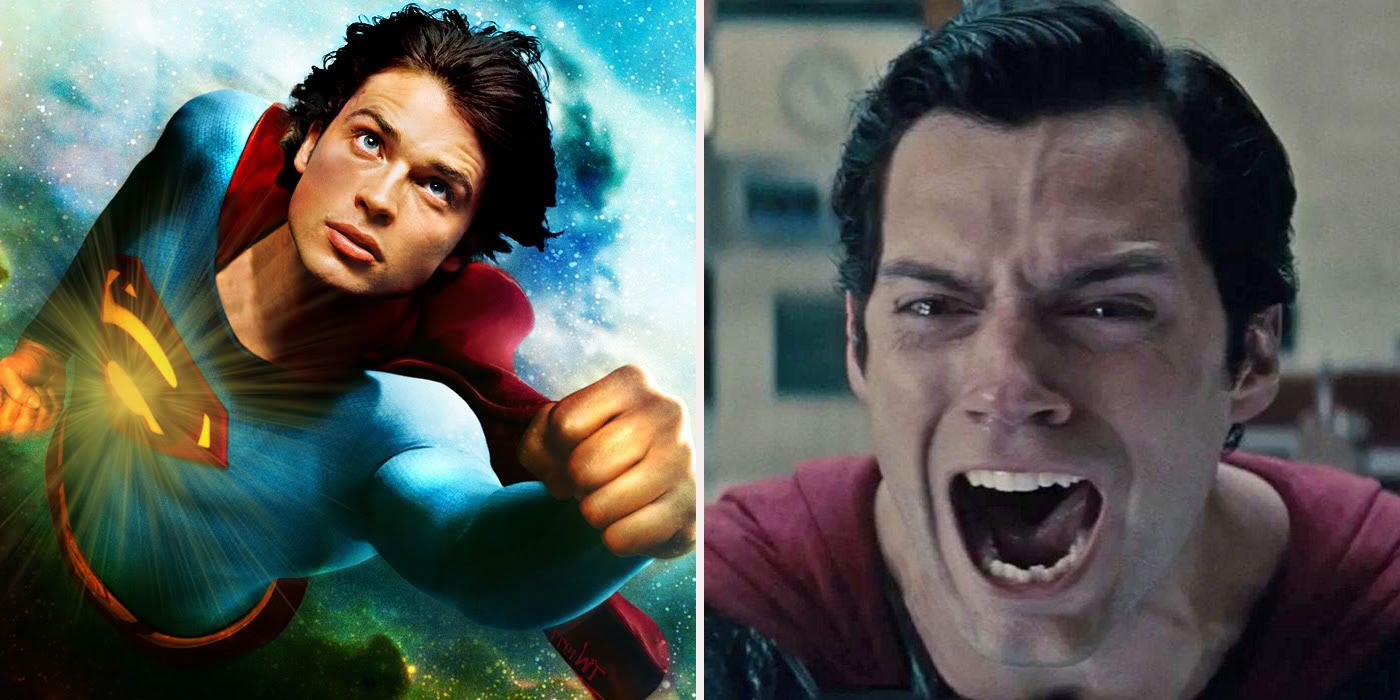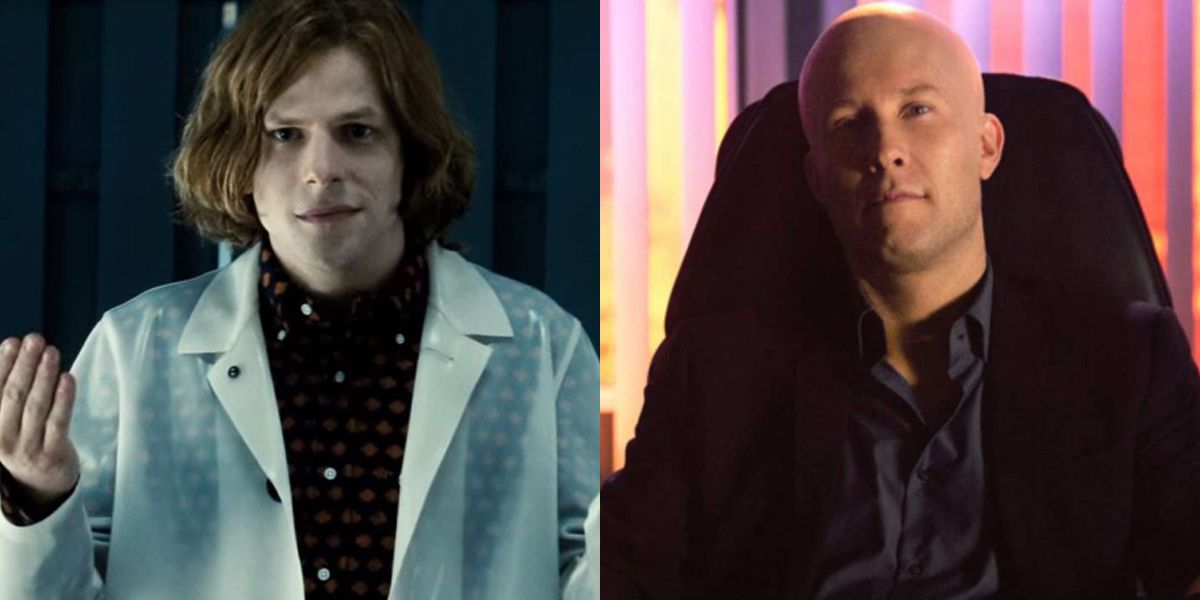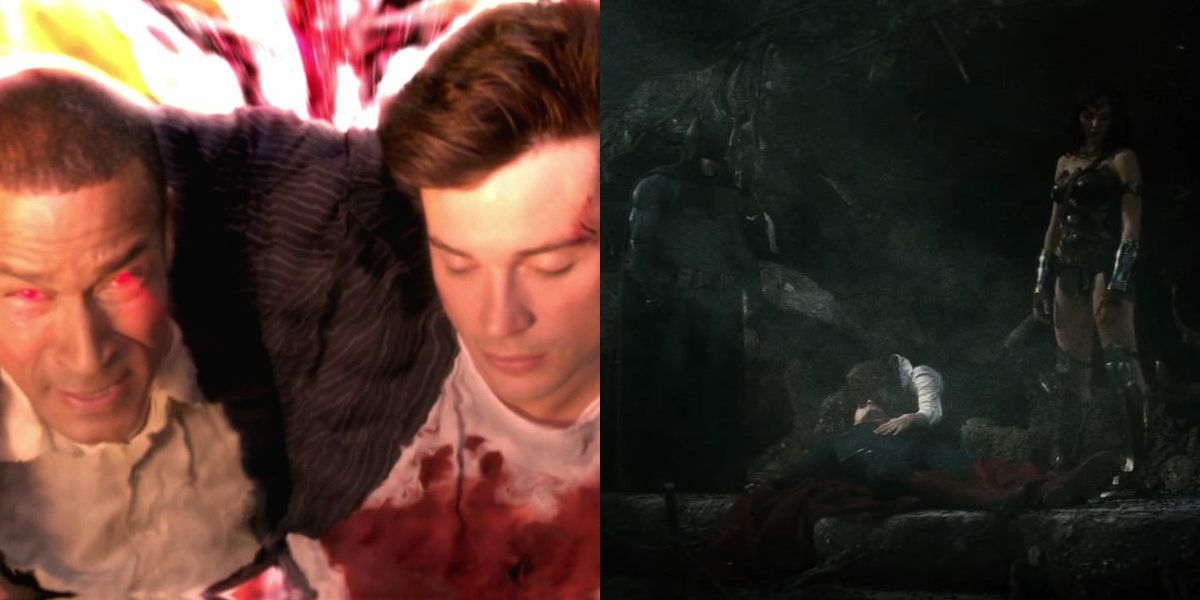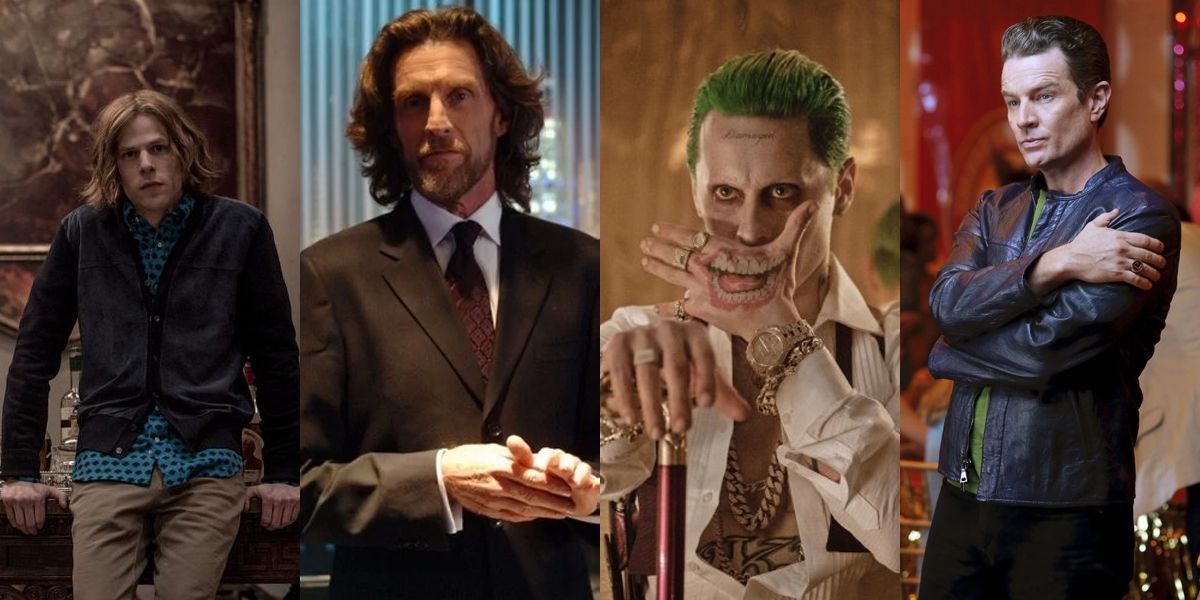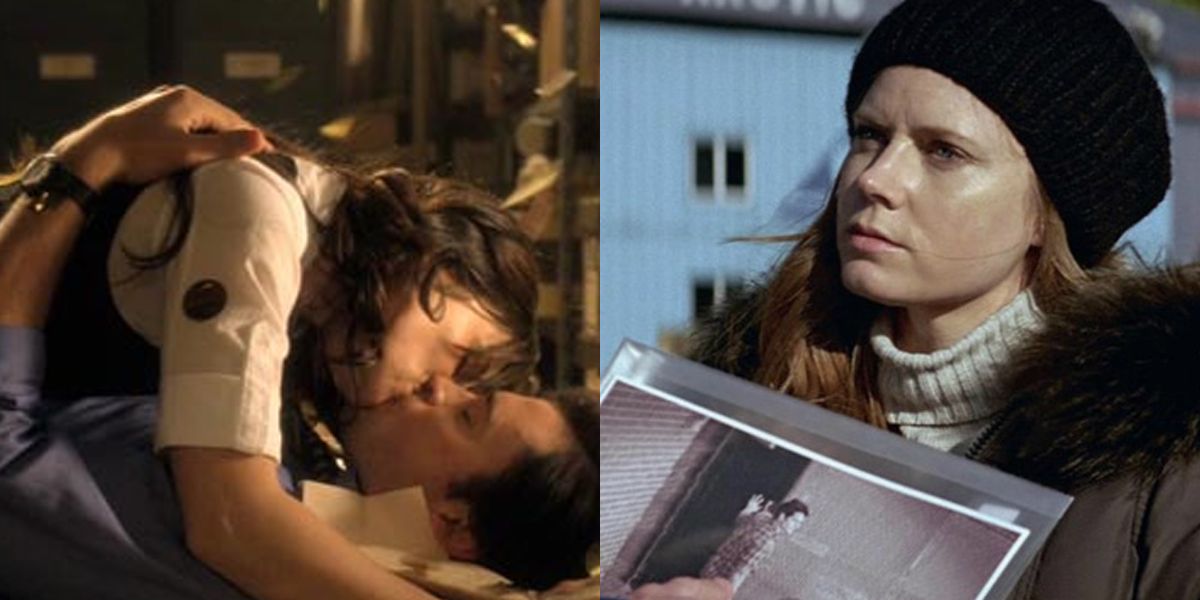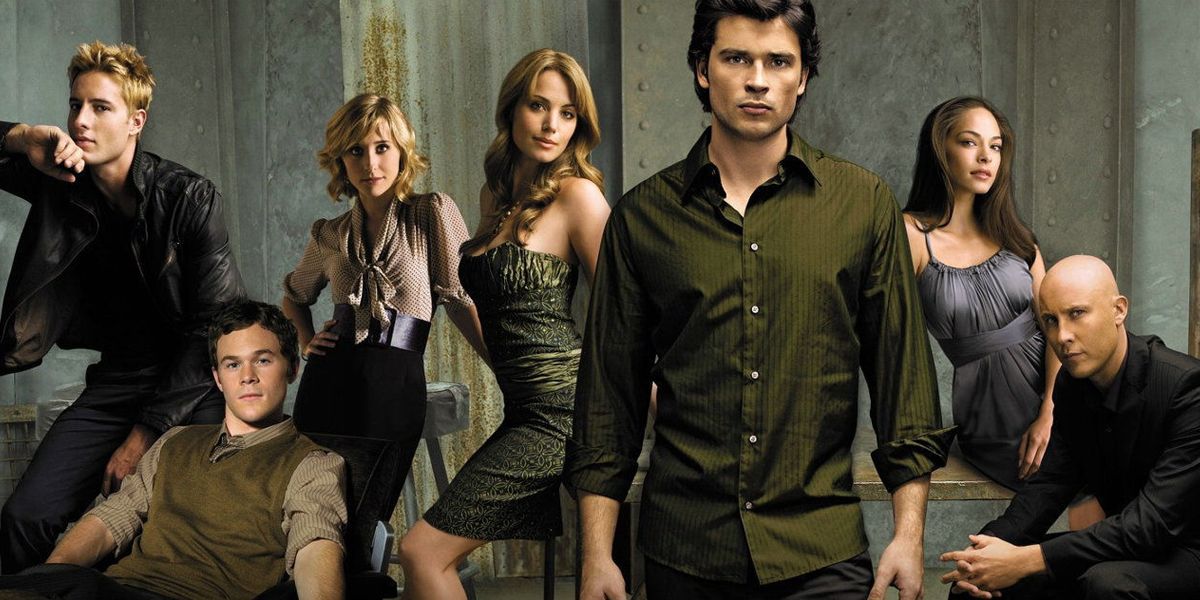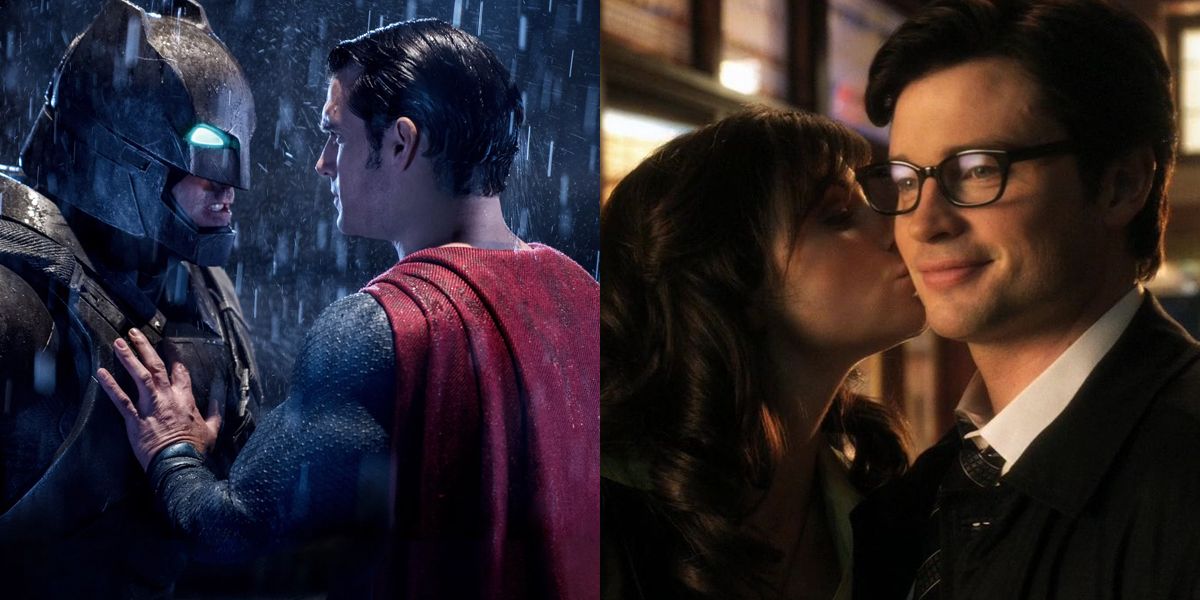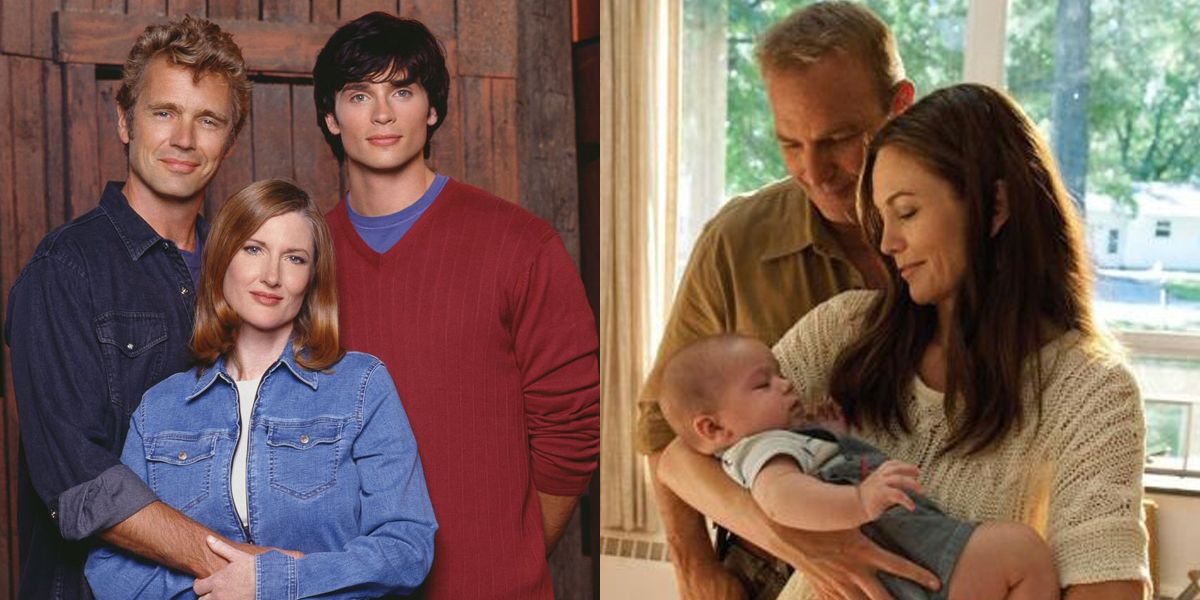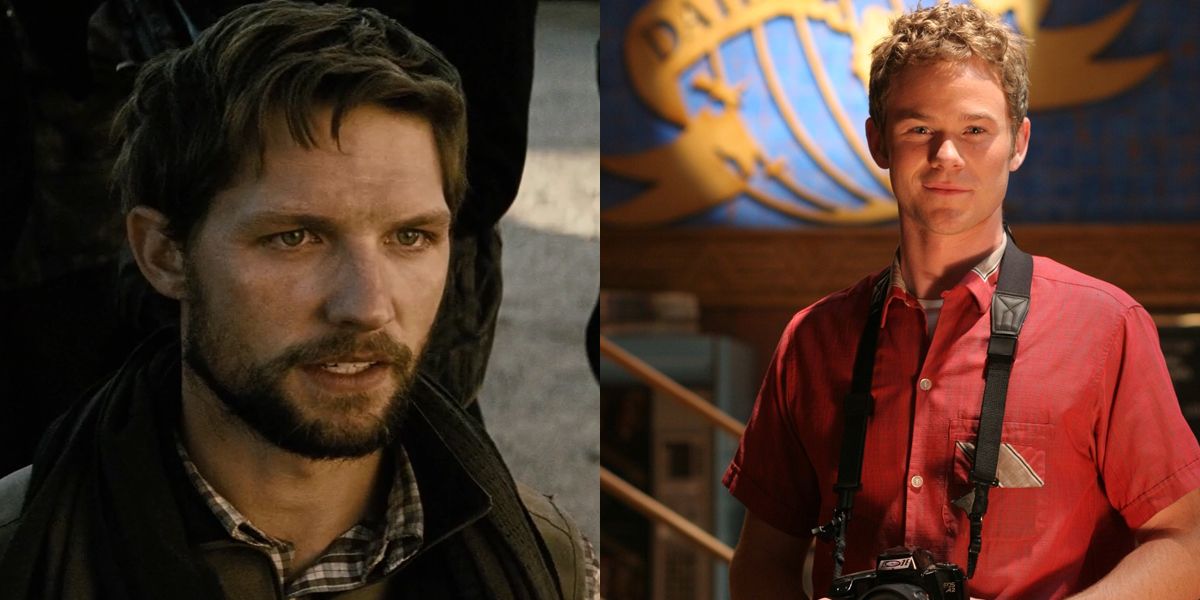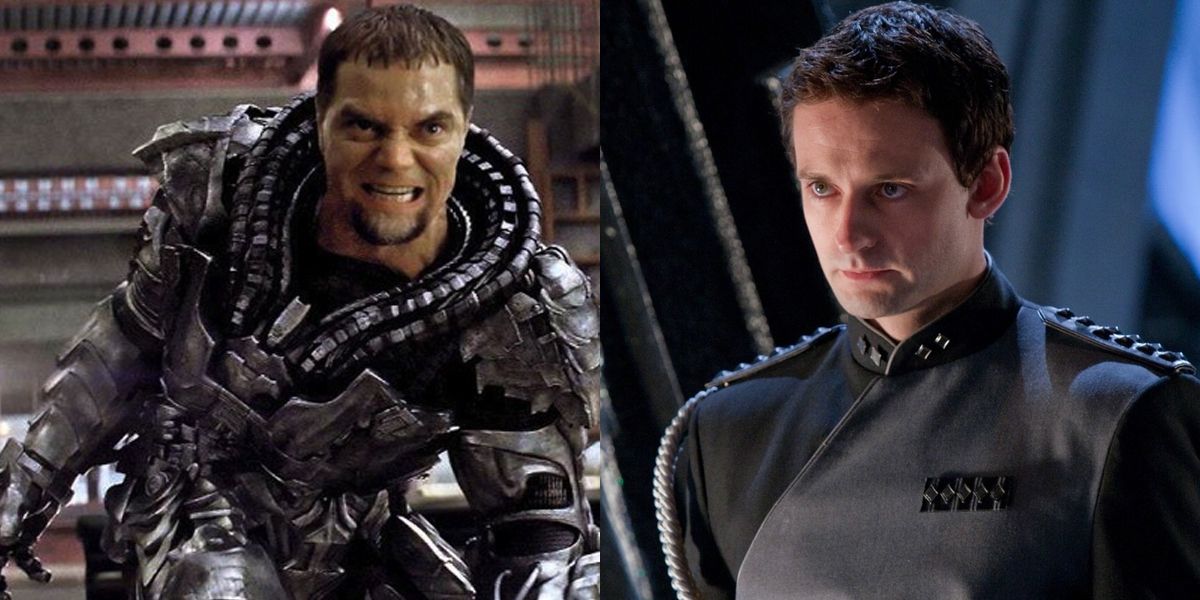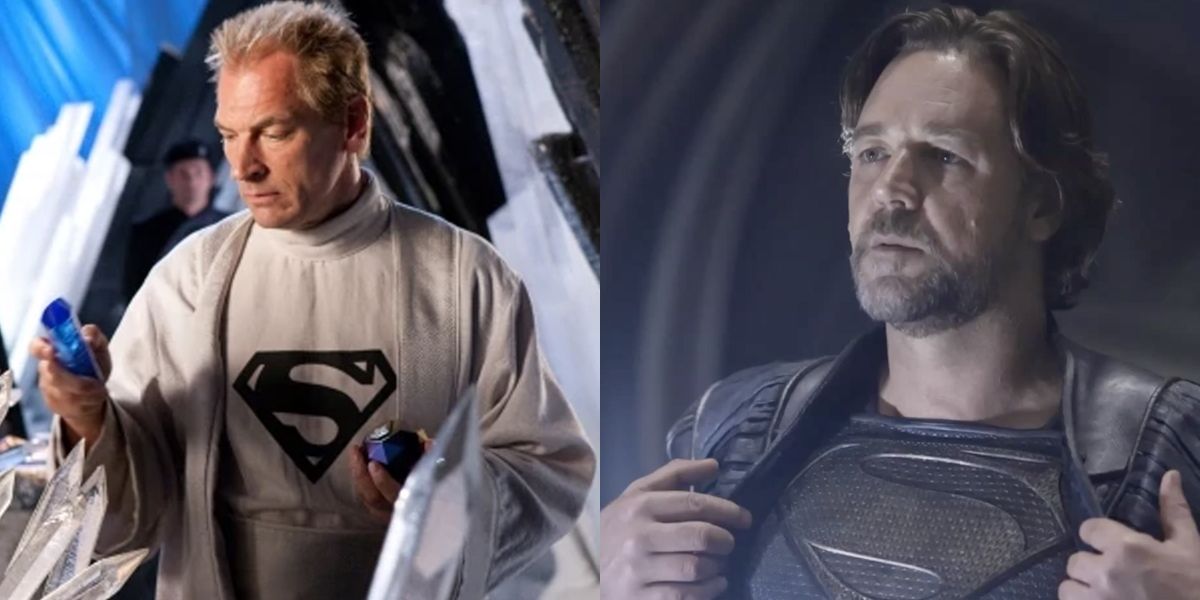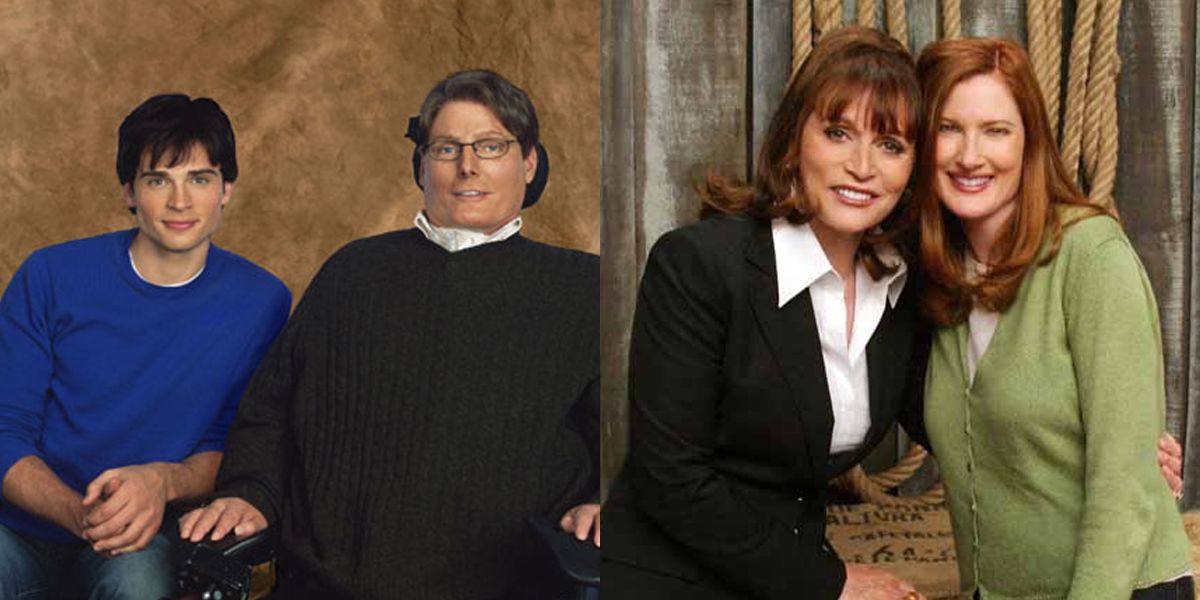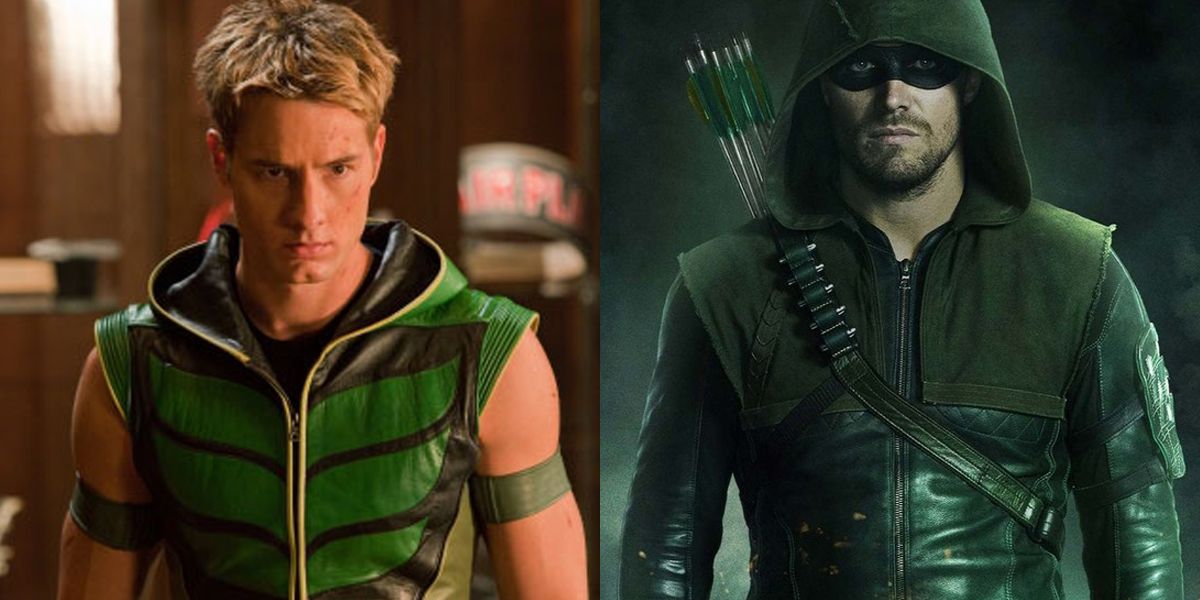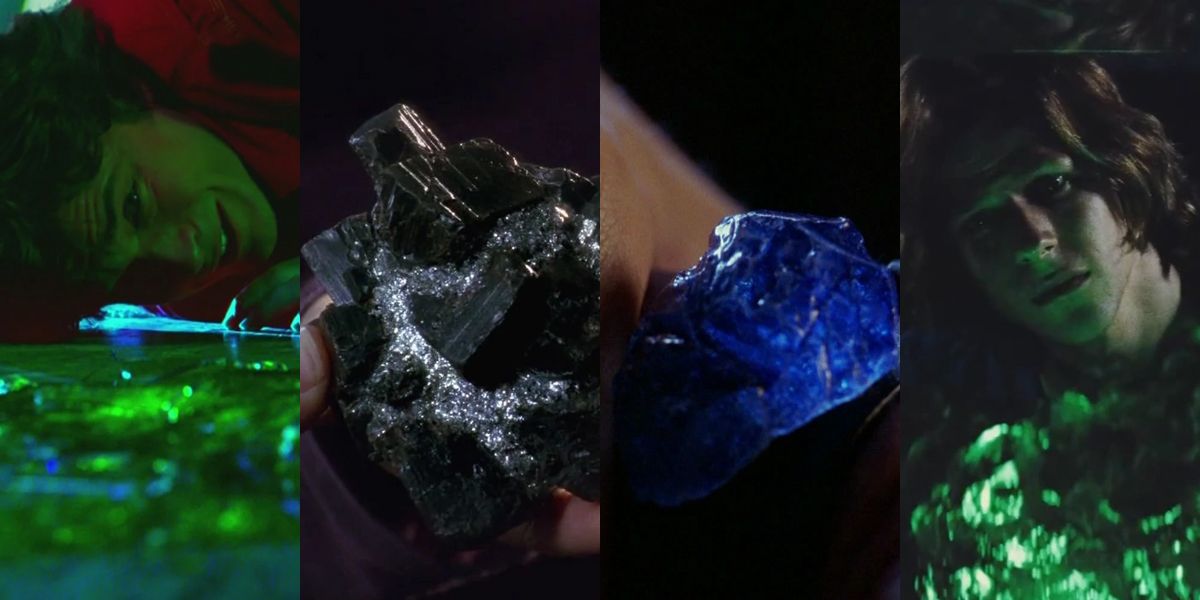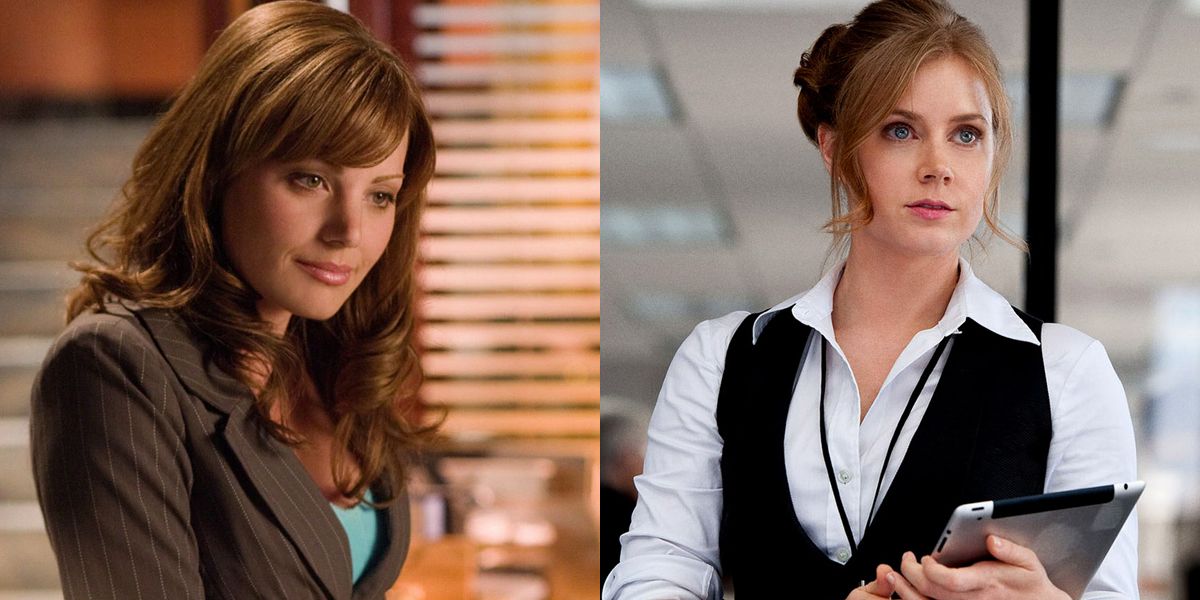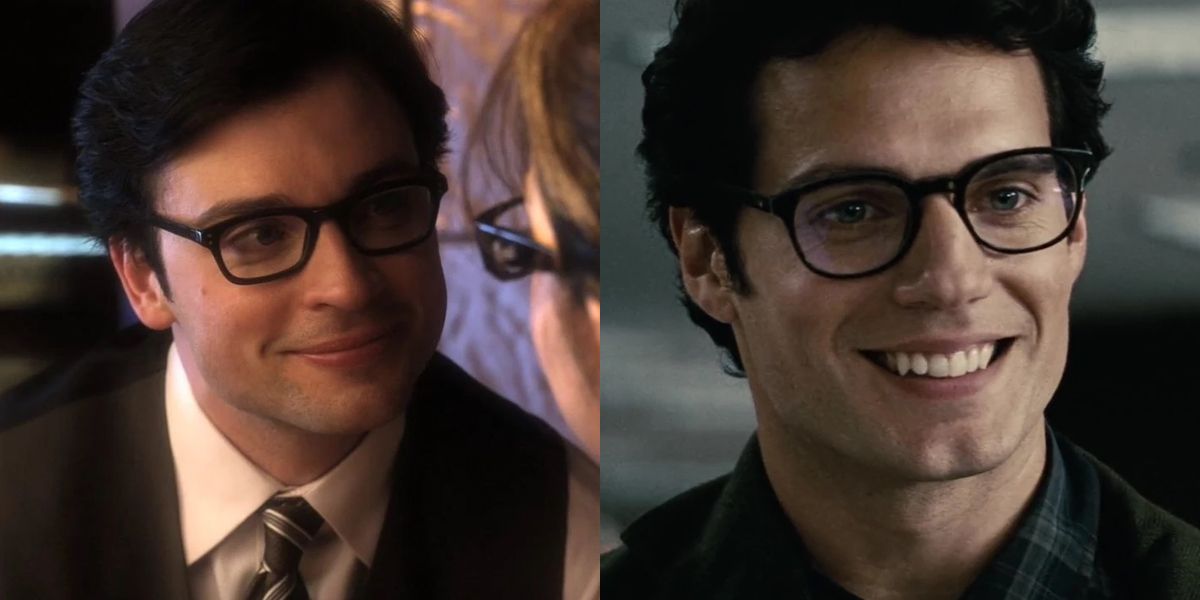Over the course of ten seasons from 2001 to 2011, the WB/CW series Smallville offered an inside look at the making of a superhero. As an incredibly lengthy and in depth origin story, the series allowed viewers to get to know Clark Kent and his world in a lot more detail than any film adaptations could.
Smallville followed Clark's journey from awkward high school student to Daily Planet reporter and full-fledged hero, but also made time to explore the lives and struggles of other crucial characters-- including intrepid reporter and Clark's soulmate, Lois Lane, his best friend turned foe, Lex Luthor, and charming playboy vigilante, Oliver Queen.
By virtue of being a long-running TV series, Smallville had many more opportunities to give storylines their adequate attention and treatment than the films would be able to do. In particular, this contrast could not be clearer when you compare Smallville's story-telling with what we've seen so far in the DCEU.
While it certainly looks like the DCEU is course-correcting after the successes of Wonder Woman, there's no denying that so many of the problems that plagued its earlier films are issues that Smallville handled much more gracefully and without nearly anywhere as much controversy.
Here are the 15 Things Smallville Did Better Than The DCEU.
Lex Luthor
As an indisputable evil mastermind, Lex Luthor has always been and will always be one of the most iconic comic villains to ever exist. Cunning and calculating and unafraid to go after what he wants, he is the opposite of Clark in every way, which makes each of their interactions pop with the perfect amount of friction.
Yet, in Batman v Superman, the DCEU's adaptation of Lex Luthor couldn't be further from the legendary figure. Jesse Eisenberg is horribly miscast in the role, portraying Lex with a confusing and sometimes childish manic edge as he delivers clunky dialogue.
In comparison, on Smallville, Michael Rosenbaum's Lex transcends from charming friend to villainous genius to tortured soul in one of the series' finest acting showcases. With his role, Rosenabum accomplishes the heartrending task of making viewers desperately hope for a fix for the tragic outcome they already know is predestined.
The death of Clark Kent/Superman
The death and rebirth of the hero is an important step in every heroic journey, something that is more than familiar to fans of comics everywhere. At the end of Batman v Superman, Superman is "killed off" in dramatic fashion, complete with a sacrificial message and staging and a grandiose public memorial. Yet the very last image of the film undercuts his sacrifice by strongly suggesting his return, unquestionably as soon as next month's Justice League.
It's true that Smallville never killed Clark off for very long, as he was the central figure around which the series revolved and it would be unthinkable to have Smallville without "Smallvill" himself.
Nevertheless, his many near deaths, death defying experiences, and disappearances always held greater consequence and emotional weight than what the DCEU has set up, including the Martian Manhunter selflessly sacrificing his own powers to save Clark's life.
Villains
Regardless of whether you agree with many of the criticisms that the DCEU has faced, there's no avoiding the fact that the DCEU villains have been many of the films' weakest elements.
Jesse Eisenberg's Lex Luthor, Jared Leto's Joker, and Doomsday in Batman v. Superman were all largely disappointing or impossible to take seriously. Even the trio of villains in Wonder Woman (Ares, Ludendorff, and Dr. Poison) were the weakest parts of an otherwise strong origin story.
Smallville, on the other hand, consistently delivered threatening villains who proved credible threats. For much of its run, the series had the incredibly strong presence of the Luthor family, most notably father-son antagonists Lionel and Lex.
However, in addition to these major players, the series worked in significant arcs involving Brainiac, Zod, Bizarro, and countless villains of the week.
The reveal of Clark's identity to Lois
The reveal of Clark Kent's Superman identity to Lois Lane has been an integral part of almost every Superman adaptation and comic to date. As the quintessential comic soulmates, the reveal usually comes at a key point in their burgeoning romantic relationship.
Yet in Man of Steel, the reveal couldn't have been less emotionally motivated, as the early emphasis on Lois's investigative side leads to her essentially knowing Clark's secret before she really even knows him.
By comparison, Smallville draws out the tension of Lois learning Clark's secret from seasons 4 to 10. In the last few seasons, Lois has a back and forth relationship with the hero known as "The Blur," even once she and Clark have finally begun their romantic relationship.
Lois's investigative pursuit here culminates in one of the series' most iconic and narratively satisfying scenes, with Clark deciding to confess his true identity to her... only for Lois to throw herself at him and tackle him to the ground with a kiss, implying that she's known for quite some time.
Casting
The casting process for iconic characters will always inevitably lead to an uproar of some sort, but perhaps no franchise has been plagued by as many casting controversies as the DCEU has been so far.
The announcement of Ben Affleck and Gal Gadot as Batman and Wonder Woman led to many displeased reactions, with the latter ultimately proving to be a much more successful choice than the former. The eyebrow-raising choice of Jared Leto as The Joker is still one that puzzles and infuriates fans to date, particularly with further Joker-related films rumored to be in the pipeline.
By comparison, Smallville had a much smoother run of things. Actors like Tom Welling, who began the series as comparatively inexperienced and questioned because of it, only grew stronger with time and proved their potential time and again.
Similarly, the casting of legacy stars such as John Schneider, Annette O'Toole, and John Glover to round out the adult cast allowed for a strong foundation for the younger stars to work off and grow from.
Tone
From its beginning, the DCEU has been consistently criticized for its tone, which is often unbearably dark and miserable in a way that feels like they're trying to make films that are edgy and stylistically gritty.
DC movies can have a mostly gritty tone and work: the Nolan Batman trilogy is a perfect example of that. However, the DCEU hasn't offered much in the way of hope until Wonder Woman's inspiring message that "only love can truly save the world."
Yet in its ten seasons, Smallville was able to cover multiple different genres all but seamlessly. Ranging from a coming of age story with comedic and dramatic elements typical of any story about teenage life, to grand sweeping romance, to high concept science fiction and adventure, and even all the way to investigative journalism procedural, Smallville did it all, and did it well.
The Kent family
When it came to Clark Kent's adoptive parents, Jonathan and Martha Kent, the DCEU pulled no punches in their casting, choosing reliably strong and renowned actors Kevin Costner and Diane Lane for the roles. A traditionally wholesome family steeped in farm-grown sweetness and support, the Kents are a vital part of making Clark into the hero he is.
While Costner and Lane did just fine in their takes on the characters, they never came close to the portrayal of the beloved married couple Smallville offered. With John Schneider of Dukes of Hazzard fame as Jonathan and onetime Lana Lang Annette O'Toole as Martha, the duo's onscreen chemistry and homey warmth perfectly translated to the boundless devotion and inspiration the Kent parents provided Clark in his formative years=.
All of this made Jonathan's tragic death in the series' 100th episode all the more heartbreaking.
Jimmy Olsen
Always a reliable source of good-natured comedy and deeply supportive friendship, nerdy photojournalist Jimmy Olsen has been a reliable part of Superman's history for nearly 80 years.
His identity as a photojournalist is truly his most defining characteristic, which is why the DCEU's treatment of his character is equal parts curious and maddening. In Man of Steel, Jimmy Olsen has a thankless part as an apparent undercover government agent posing as the Jimmy Olsen we all know, who is then summarily killed.
On Smallville, Jimmy Olsen is much more faithful to his comics counterpart. Ever his affable and bumbling self, he has a long narrative arc across three seasons, along with a sweet romance with Chloe Sullivan, wonderful friendships with Clark and Lois, and a truly tragic end, creating a more fully fleshed out character in the process.
General/Major Zod
One of Superman's greatest foes regardless of the adaptation, Zod is an enigmatic, power hungry figure who poses a large threat to the House of El at all times. A rogue Kryptonian military leader, Zod is ruthless and will stop at absolutely nothing when it comes to accomplishing his sadistic goals.
Yet the DCEU takes this legendarily threatening figure and twists him in such a way that, while still frankly creepy to witness, Zod is almost so bad he becomes a source of comedic relief.
Saddled by a bizarre and creepy design, a distasteful eugenics-inspired plotting, and scores of bad dialogue, Michael Shannon's General Zod in Man of Steel is basically the definition of a cinematic misfire.
In Smallville, Zod is a more consistently terrifying foe, appearing in multiple iterations and even possessing Lex Luthor at one point to present one of the ultimate threats. Yet it's Callum Blue's portrayal of the cold and calculating mind in season 9 and 10 that separates Smallville's Zod from all the rest.
Jor-El
The character of Superman's biological father, Jor-El, is one that is difficult to handle correctly. Often relegated to flashbacks and artificial intelligence, the right actor has to be chosen in order for the character to transcend the role from plot device to crucial mentor figure.
Unfortunately, no matter how good an actor Russell Crowe may be, he falls into the category of those who are shortshrifted by the AI angle and brevity of the role.
But given Smallville's length, the series was able to explore Jor-El's life and AI existence at multiple phases, with multiple actors, including Tom Welling himself, Terence Stamp, and Julian Sands inhabiting the role at different points in the series.
Although Jor-El was rarely seen in the flesh, Smallville went to great lengths to humanize the ethereal otherworldly leader in a way the DCEU fell short of.
References/nods to previous superhero legends
It's become pretty standard for comic adaptations to include references to earlier adaptations, or cameos by actors who are now considered legends in connection to their respective franchise.
Look no further than the MCU's use of the Stan Lee cameo for the quintessential example of this. However, so far, the DCEU has seemed resistant to the trend, while the Arrowverse has occasionally dabbled in it on The Flash and Supergirl.
Yet long before any of these universes existed, Smallville paid due respect to the iconic pairing of Christopher Reeve and Margot Kidder, the iconic Clark and Lois of the '70s and '80s, who recurred across seasons 2 through 4 as Dr. Virgil Swann and Bridgette Crosby.
Making the homage all the more fitting was Smallville's casting of Reeve and Kidder's former onscreen partner, Annette O'Toole (Lana Lang in their franchise), as Clark's mother, Martha.
Oliver Queen
Okay, fine, maybe this entry isn't strictly limited to the DCEU, but more of a DC Multiverse problem, but there's no denying the fact that one of the biggest strikes against the DCTV Arrowverse is the total failure of its adaptation of its foundation character, Oliver Queen.
Stephen Amell might look the part for a vigilante, and maybe the stunt work is great, but from day one, Arrow has never really been a show about the Green Arrow, but rather, The CW's attempt at turning the masked archer into a brooding Batman-lite.
Amell's monotone delivery of angsty speech after speech, coupled with this version of Oliver's total lack of his signature charm, stands in even more disquieting contrast when you look at how Smallville handled the character.
A vibrant character who was every bit as suavely endearing as he was roguishly tortured, Justin Hartley's Oliver Queen stole each and every scene he appeared in, providing a worthy foil for Clark in every way.
Kryptonite
As Superman's biggest weakness, Kryptonite is a crucial part of every Superman story. In the DCEU, it came into use in Batman v Superman, with Lex Luthor discovering the mineral and intending to use it against Superman.
However, since the movie is Batman v Superman and not Luthor v Superman, Batman inevitably steals it and uses it to create weapons for his battle against Superman. Yet the DCEU has only explored one kind of Kryptonite so far— its traditional green form— and have limited their own story-telling in the process.
By contrast, Smallville explored eight forms of Kryptonite over the course of its run, all of which affected Kryptonians in a variety of ways: red leads to reckless behavior, gold renders its victims permanently powerless, blue prevents the use of powers via direct contact, silver leads to paranoia, and so on.
In embracing more forms of the stone and recognizing that each form had different effects, Smallville kept its use of the weapon far fresher than the DCEU has so far.
Lois Lane
As a whip-smart heroine and intrepid journalist, Lois Lane is equal parts sass, feminine charm, and awesome. Having proven over the years that she can hold her own, despite assumptions that being Superman's girlfriend makes her a damsel in distress, Lois is an iconically strong female character who can be difficult to adapt correctly. Unfortunately, the DCEU is just one of many adaptations that has come up short.
There's no denying that Amy Adams is a truly gifted actress: her Oscar nominee history, and most recently the acclaim she received for Arrival, attest to this fact.
However, as Lois, Adams is yet another hopelessly miscast member of the DCEU who fails to bring the necessary spark and wit to the role of Lois Lane, which Smallville's Erica Durance brings in spades.
Originally intended as only a brief recurring role in the series, Durance soon proved why she was a vital asset to the series, and would go on to become Smallville's rightful female lead.
Clark Kent
As the superhero who stands for "truth, justice, and the American way," Clark Kent is meant to be an every man in every way but one crucial one—that he's not actually your average everyday man, but an otherworldly hero. Nevertheless, he tries his best to fit in, donning a boy's regular haircut and thick-rimmed glasses to seem like the consummate nerd.
The DCEU chose Henry Cavill to bring Clark to life, and although he might be a bigger, flashier name with more of an esteemed acting history than Tom Welling had prior to taking on the Superman title, Cavill overacts his way into a hammy hapless nerd schtick that came far more naturally to Welling.
Likewise, as farm boy Clark's heroic alter ego, even though we never got to really see Welling suit up due to Smallville's hard and fast "no tights, no flights" rule, Welling carried the heroic weight and responsibility with greater ease and charisma than Cavill ever has.
---
What else do you think Smallville handled better than the DCEU has so far? Do you disagree? Let us know in the comments!

